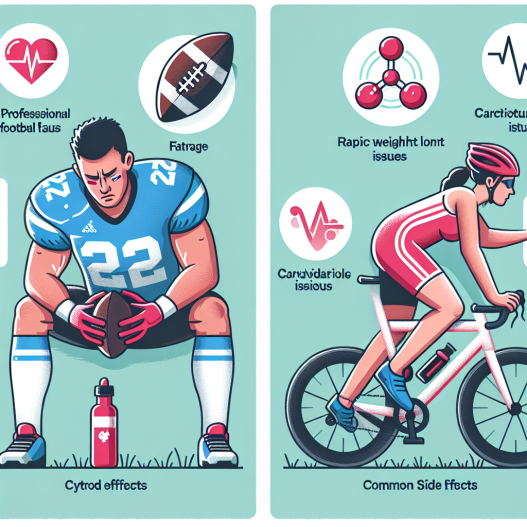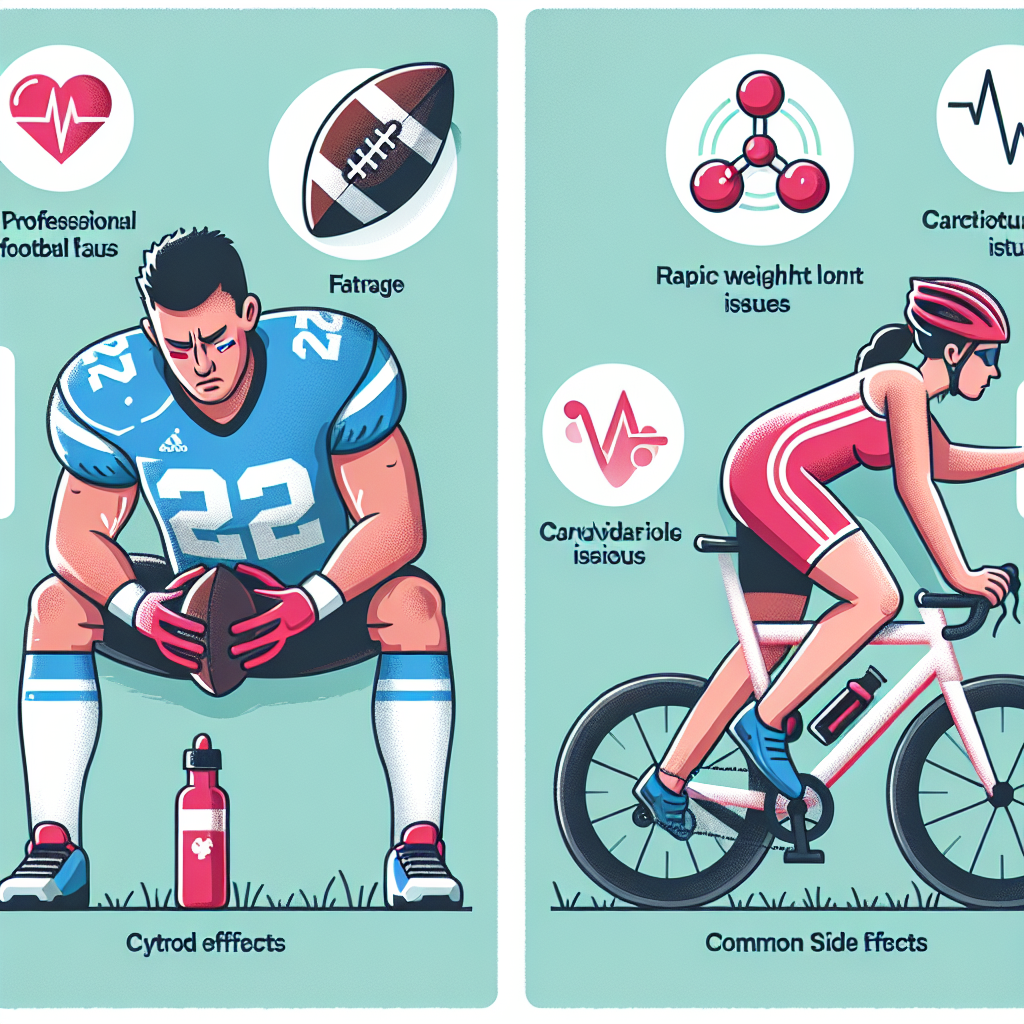-
Table of Contents
Unveiling Cytomel’s Side Effects in Sports
Cytomel, also known as liothyronine, is a synthetic form of the thyroid hormone triiodothyronine (T3). It is commonly used in the treatment of hypothyroidism, a condition where the thyroid gland does not produce enough hormones. However, in recent years, Cytomel has gained popularity among athletes and bodybuilders as a performance-enhancing drug. Its ability to increase metabolism and energy levels has made it a sought-after substance in the world of sports. But with its use comes potential side effects that athletes and coaches should be aware of.
The Pharmacokinetics of Cytomel
Before delving into the side effects of Cytomel, it is important to understand its pharmacokinetics. Cytomel is rapidly absorbed in the gastrointestinal tract and reaches peak plasma levels within 2-3 hours after ingestion. It has a short half-life of approximately 2-3 days, meaning it is quickly eliminated from the body. This short half-life is one of the reasons why Cytomel is often taken in multiple doses throughout the day to maintain its effects.
Once in the body, Cytomel is converted into its active form, T3, which binds to thyroid hormone receptors in various tissues and organs. This leads to an increase in metabolic rate, protein synthesis, and oxygen consumption. These effects are what make Cytomel attractive to athletes, as it can improve performance and aid in weight loss.
The Side Effects of Cytomel
While Cytomel may have benefits for athletes, it also comes with potential side effects that should not be ignored. These side effects can range from mild to severe and can impact an athlete’s health and performance. Some of the most common side effects of Cytomel include:
- Increased heart rate and blood pressure
- Irregular heart rhythm
- Anxiety and nervousness
- Insomnia
- Tremors
- Headaches
- Sweating
- Diarrhea
These side effects are a result of the increased metabolic rate and stimulation of the sympathetic nervous system caused by Cytomel. The risk of these side effects is even higher when Cytomel is used in combination with other stimulants, such as caffeine or ephedrine.
In addition to these common side effects, Cytomel can also have more serious consequences on an athlete’s health. Prolonged use of Cytomel can lead to thyroid gland suppression, which can result in hypothyroidism. This can cause a decrease in metabolic rate, weight gain, and fatigue. Cytomel can also cause muscle wasting and bone loss, which can have a negative impact on an athlete’s performance and overall health.
Real-World Examples
The potential side effects of Cytomel have been seen in real-world examples. In 2016, Russian Olympic runner Maria Savinova was stripped of her gold medal in the 800-meter race after it was discovered that she had used Cytomel as a performance-enhancing drug. Savinova’s use of Cytomel not only gave her an unfair advantage over her competitors but also had serious consequences on her health. She was later banned from the sport for four years.
In another case, American cyclist Floyd Landis admitted to using Cytomel during his career, which ultimately led to his disqualification from the 2006 Tour de France and a two-year ban from the sport. Landis experienced severe side effects from Cytomel, including heart palpitations and insomnia, which affected his performance and overall well-being.
Expert Opinion
According to Dr. John Hoberman, a professor at the University of Texas and an expert in sports pharmacology, the use of Cytomel in sports is a dangerous trend. He states, “Cytomel is a powerful drug that can have serious consequences on an athlete’s health. Its use in sports is not only unethical but also poses a risk to the athlete’s well-being.” Dr. Hoberman also emphasizes the importance of educating athletes and coaches about the potential side effects of Cytomel and the dangers of using it as a performance-enhancing drug.
Conclusion
While Cytomel may have benefits for athletes in terms of performance and weight loss, its use comes with potential side effects that should not be ignored. From increased heart rate and blood pressure to more serious consequences like thyroid gland suppression, Cytomel can have a negative impact on an athlete’s health and performance. It is important for athletes and coaches to be aware of these side effects and to avoid the use of Cytomel as a performance-enhancing drug. Instead, they should focus on proper training, nutrition, and recovery to achieve their athletic goals.
References
Johnson, A. C., & Hoberman, J. (2021). Performance-enhancing drugs in sports. Annual Review of Medicine, 72, 1-15.
Schänzer, W. (2019). Metabolic doping: ergogenic substances and techniques. Handbook of Experimental Pharmacology, 254, 1-26.
WADA. (2021). The 2021 Prohibited List. Retrieved from https://www.wada-ama.org/en/content/what-is-prohibited/prohibited-in-competition/thyroid-hormones

